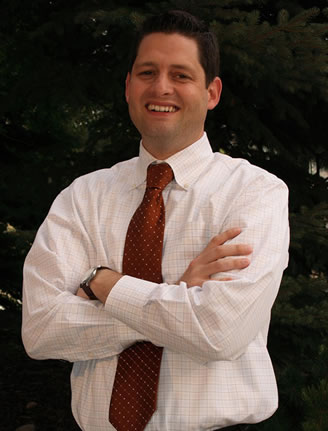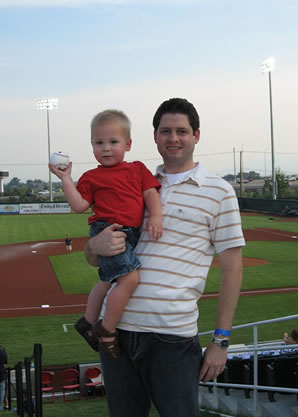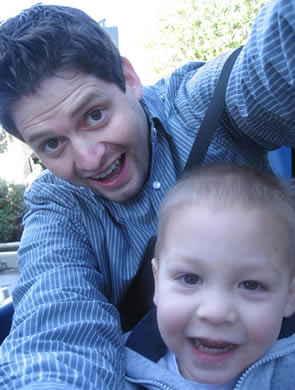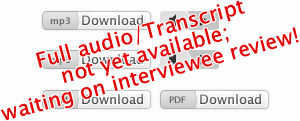
Ethan Willis from Prosper, Inc. joins us for today’s interview. He’s very undercover – I have been trying to get this interview for at least a year and finally managed to convince him. I think a lot of you don’t even know what he looks like. Prosper focuses on producing leads, selling to those leads, and then providing fulfillment. They work with people like Ken Blanchard, Donald Trump, and Robert Allen. Ethan also talks about his new book with Ken Blanchard (from the One Minute Manager series).
Full Interview Audio and Transcript
Personal Info
Hobbies and Interests: Photography, Outdoor Photos in Utah, Kickboxing, Working Out, Travelling, Working with Youth in Church.
Favourite Sports Teams: LA Lakers, Notre Dame.
Favourite Books:
- E-Myth by Michael E. Gerber
- Good to Great by Jim Collinsgood
- The One Minute Manager by Kenneth H. Blanchard and Spencer Johnson
Favourite Entrepreneurs: Steve Jobs, Walt Disney.
Company Website: http://www.prospercorp.com
Fast Track Interview
Adrian Bye: Today I’m talking with Ethan Willis of Prosper, Inc. Ethan, why don’t you tell us a little bit about who you are, where you’ve come from, and what you’re up to these days?
Ethan Willis: I grew up in Pasadena, California and lived in Brazil for two years. I moved to Utah after receiving a scholarship to go to Brigham Young University. I graduated with a degree in Marketing Communications.
Prosper has three different parts to the company. AdCafe.com is the front-end lead generation side. In many ways, it has all of our offers for affiliates to run and take to the market. Currently, we have six or seven offers on AdCafe.com. Our leads come from those we directly receive, from our database of over four million names, from partners with whom we work, and from new business.
The second part of our business is selling to those leads. The third part is fulfilling those leads through the coaching arm, the product development arm, and the content development side. We’re the only company I know of that can do all three parts of our business: producing leads, selling leads, and fulfilling leads.
Adrian Bye: How did you start your business?
Ethan Willis: I started the business in 1998 with just two employees: myself and my partner Randy Garn, who I met and worked with at BYU. Today, we have over 500 employees in four offices.
After my first year at BYU, my scholarship ended, and I found a summer job going door-to-door selling pest control. It was one of the most difficult things I’ve ever done. However, I learned quickly and made over $33,000 that first summer.
When I came back to school, I recruited Randy to work with me. The next summer, we went to San Diego where we had a sales office of 12 sales agents and 12 pest control technicians. We were the top sales office. When we came back to Provo, Utah, we didn’t want do pest control anymore. Instead, we started a marketing company.
Adrian Bye: What was your trick at being so good at selling pest control?
 Ethan Willis: When I first started selling, I used what I call the “next-door theory.” I always thought, “I’m not going to get the sale here. I’m going to try to get it at the next door.” It continued to go on until I wouldn’t get any sales during the whole day. I soon realized, “I’m going to get the sale at this door, as if it were my last door.”
Ethan Willis: When I first started selling, I used what I call the “next-door theory.” I always thought, “I’m not going to get the sale here. I’m going to try to get it at the next door.” It continued to go on until I wouldn’t get any sales during the whole day. I soon realized, “I’m going to get the sale at this door, as if it were my last door.”
It was honing myself and my presentation along with my sheer determination and the realization that I had to make each interaction my best. I also realized the better you market, the less you have to sell. As a result, I started developing marketing collateral to persuade people to buy door-to-door. We sent direct mail and flyers and made phone calls before we went to work in our area.
We carried that into our business today. We have a great sales company, but one of the things we do very well is the marketing aspect by conditioning customers with the messaging beforehand. As a result, when they are introduced to a sales person, they are ready to make a purchase.
Adrian Bye: How did you go from pest control to starting Prosper?
Ethan Willis: The first marketing account we worked on was Peter Lowe International. We were getting people to the Peter Lowe events as well as marketing the products and services at the events. It came to the point where we said, “Too many people are not buying anything.”
We started taking those names and marketing the products and services after the event. We found that the margins were much better, and we didn’t have to travel as much. We then started working those leads on the backend.
Then instead of getting names from people who attended an event, we got into the lead generation side to produce our own leads. We then had the idea of taking a presentation that someone, such as Robert Allen, would do and making an online, downloadable product. We thought, “How do we take what he’s doing and saying on stage, put that on the “World Wide Web”, and get that message out to people so they hear it and buy into it.” After someone showed interest or made a purchase, we would then follow up with them.
Adrian Bye: Basically, you went looking for buyer leads on the Internet?
Ethan Willis: Right. This was even before a lot of people were doing CPA. It was primarily CPM where you’re paying $1,000 for one million names. We’d do a drop to that. We didn’t know what to expect, but all of a sudden we started getting 300, 400, 500, and even up to 1,000 leads a day. We then started trying to find more lists in which to drop.
Adrian Bye: You did your own lead generation to find buyers. You were selling them yourselves. Were you also doing all of the fulfillment, customer service, and everything else?
Ethan Willis: Yes. From the beginning, we knew we wanted to control all aspects of the business. We want to know the customer from when they come in until they’re fulfilled in their last session. We do everything in between to make that successful. That includes accounting, customer service, and quality assurance.
 Nowadays, too many groups patchwork it together. For example, one group does leads. One group does sales. One group does fulfillment. There’s no continuity for the customer through the process. With the way it is set up, a lot of times you don’t know what the fulfillment is, what they’re really getting, or the continuity between the front and the back.
Nowadays, too many groups patchwork it together. For example, one group does leads. One group does sales. One group does fulfillment. There’s no continuity for the customer through the process. With the way it is set up, a lot of times you don’t know what the fulfillment is, what they’re really getting, or the continuity between the front and the back.
One of my favorite books is E-Myth by Michael Gerber. He says, “The purpose of a business is to fulfill the promises its people make.” If we aren’t involved in each aspect, it’s hard to know what promises are being made on the front-end with marketing. It’s hard to know what promises are being made with the sales group. It’s hard to know what promises are being made from the compliance side, and what promises are being fulfilled on the fulfillment side.
Too many things can go wrong, which I’ve seen many times. For example, the fulfillment house goes out of business. The sales company has already paid the fulfillment house. The sales group then doesn’t really have the money to pay for the actual fulfillment. As a result, those customers are unfulfilled. You can also have consumer complaint issues, even up to the point of issues with attorney generals.
Adrian Bye: You now have 500 employees. As an Internet company, that’s astonishing. How do you manage so many people and keep such a big organization running?
Ethan Willis: Having so many employees is a wonderful thing. You have the opportunity to work with great people with different talents. One thing we talk about in our company is being able to have the best ideas bubble to the top.
On the other side, there is the need to manage all of those people. It takes two things to run the organization. Number one is getting good people to manage the employees. Number two is hiring good people from the beginning.
A lot of companies become bureaucratic because they are trying to set up systems and processes to manage the wrong people. If you can have the right people who believe in what you’re trying to do and who have the right philosophy, the culture of the business will often manage itself. Then it’s all about fostering that culture.
Adrian Bye: Is the company privately held by you and Randy? Do you have any outside shareholders or a board of directors?
Ethan Willis: It’s a private company with no other shareholders or outside investors. We do have a board of directors. Tom Stockham, former CEO of MyFamily.com, is a member of our board of directors. We also have members of the advisory board and others to help give us direction.
Adrian Bye: If you’ve grown it organically, why did you set up a BOA and a BOD?
Ethan Willis: As our business is growing, we know experience and perspective is key. People have already paid a lot of money and taken a lot of time and energy in things they’ve done wrong or they’ve learned. Those are scars they have, and I’d rather learn from their scars than have to go through it ourselves.
Adrian Bye: You’re also generating coaching and training programs to help people make money. Is that generally your focus going forward?
Ethan Willis: It is. On the coaching side, every week we teach 1,700 one-on-one coaching sessions in 76 countries, and tens of thousands of students have come through our programs. We explain what we do as ROI-based education.
Our demographic are people who have gone to school, and it has let them down. All the promises to get a degree, learn this traditional route, and be financially free have not happened for them. Our people don’t want a degree. They want specific, tactical, results-based training they can apply in their life or business to increase their income.
For example, a student comes through the One Minute Entrepreneur coaching we’re doing with Ken Blanchard and says, “I have a chiropractic business with 10,000 people in my database. How do I do a direct marketing campaign to that database?” We would teach that student how to do a direct marketing campaign to that database. They then execute on that education and have a windfall profit of $20,000 or $30,000.
Adrian Bye: What about someone who has 6,000 buyer leads a week? They may think of sending them to Prosper to help them make more money. But they also may be thinking Prosper might knock them off. What’s your answer to that?
Ethan Willis: We’re not going to take advantage of anyone in that way because we would lose current and potential partners. If anything, we help the partner in how they do lead generation. We know how to market, how to do copywriting, and how to qualify a lead for coaching. We have four or five specific techniques we can implement into someone else’s campaign that makes a more qualified coaching lead to help produce and create more revenue from their database.
Adrian Bye: If you guys are so good at having people who can make money, why are those people working for Prosper and not doing it themselves?
 Ethan Willis: Most of our coaches also run a business and invest on their own. In many ways, they come to Prosper because they do joint ventures or investment pools with other coaches. The association with Prosper and all our other brands helps build their ability to grow their businesses.
Ethan Willis: Most of our coaches also run a business and invest on their own. In many ways, they come to Prosper because they do joint ventures or investment pools with other coaches. The association with Prosper and all our other brands helps build their ability to grow their businesses.
Adrian Bye: Who are some of your big clients?
Ethan Willis: We work with Ken Blanchard, co-develop curriculum with the team from Trump University and also work with David Bach, Robert Allen, Shawn Casey and quite a few other partners.
Adrian Bye: Can you tell us about the book you recently co-published with Ken Blanchard?
Ethan Willis: Ken Blanchard has been a hero of mine for a long time. The One Minute Manager is one of the first business books I read. He’s also written Gung Ho! and Big Bucks! Ken has such a great business-to-business brand, and he wanted to further develop and leverage his brand directly to consumers. He researched who he should do that with and found Prosper.
After Ken met with us at my office, we developed a campaign named The One Minute Entrepreneur. It has 20 attributes on how to become a successful entrepreneur and have a successful venture. He then decided to make a book about it.
Don Hutson had a book called One Minute Mentor, and Ken had content from another book he was going to write. We put in the attributes and made the book more entrepreneurial. Random House gave us a contract and pre-published 200,000 books. We’ve already pre-sold 20,000 books and it has become a #1 New York Times Best-Seller.
Additionally, we have 35 partners helping us push the book. We also have a contract with Barnes and Noble to have all of the laddering in the front of the bookstore. For the next six months, we’re really going to push this. We have an offer going to databases, and we are selling The One Minute Entrepreneur coaching on the backend. We’d love to hear from anyone who wants to help Ken, Don, and I push this forward.
Adrian Bye: How much of the book did you write?
Ethan Willis: I contributed the 20 attributes. Through the book, different stories are told to Judd, who is the main character going through the experience of becoming an entrepreneur. Through the entire book, we’ve embedded these attributes behind the different stories.
At the end of the book, we developed a tool called E-strengths, which can be found at estrengths.com. After you answer 80 questions, it tells you what strengths you have, why those strengths are important, what weaknesses you have, and why you need to work on them. Tens of thousands of people have already taken the E-strengths profile.
Adrian Bye: You put that through your coaching business so you could already test it with people?
Ethan Willis: That’s right. The end of the book has all kinds of collateral about entrepreneur coaching and E-strengths, so the book is going to be a lead generator for us. Previously, we thought the front-end was just lead generation. Now I’m realizing there’s more front-end than that. There’s publishing and all kinds of front-end and back-end opportunities, and we’re just trying to expand those.
Adrian Bye: When people visit the Web site from the book, are they prompted for a name and e-mail so they get on the list? How do you then follow up with them?
Ethan Willis: Yes, they get their name and e-mail on a list there. Then they get auto responders, and we market The One Minute Entrepreneur home study course to them, which is a $40 download. If The One Minute Entrepreneur campaign works, great opportunities exist with our other authors.










